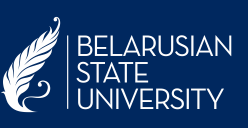
 |
Ïåäàãîãèêà èíôîðìàòèêè |
PEDAGOGY OF COMPUTER SCIENCE |
ISSN 2708-4124 |
|
APPROBATION OF MODULAR VARIABILITY TEACHING PROGRAMS OF THE SUBJECT " COMPUTER SCIENCE" BASED ON CONTEXT LEARNING IN THE FRAMEWORK OF A COMPETENCE APPROACH S.G. Puzinouskaya, E.P. Kandratovich FULL TEXT: PDF (Rus) Abstract The article deals with the description of the 1st year experience of the experimental project implementation – the approbation of modular variability in teaching “Computer Science” based on context learning in the framework of a competence-based approach. The essence of the experimental curriculum is revealed in the article, the distribution of hours required for covering the invariant and variability components of the experimental curriculum on the topics in form 8 are proposed, the ratio of the number of teaching hours in the experimental and existing curriculum is considered. There is an analysis of the preliminary results of the students` activity at lessons in the monitored and experimental classes. Key words Curriculum, modular variable curriculum, invariant and variable components of the curriculum, computer science, contextual learning. Received: 01/08/2021; accepted for publication: 01/15/2021 For citation: ________________________________________ Puzinouskaya S.G., Kandratovich E.P. Approbation of modular variabilityteaching programs of the subject "Computer science" based on context learning in the framework of a competenceapproach. Electronic scientific and methodological journal “Pedagogy of computer science”. 2021;1. Http://pcs.bsu.by/2021_1/3ru.pdf Content is available under license Creative Commons Attribution-NonCommercial-ShareAlike 4.0 International License. About the authors: S.G. Puzinouskaya
E.P. Kandratovich
References 1. Kodeks Respubliki Belarus' obobrazovanii. [Education Code of the Republic of Belarus]. Minsk. National center for legal information of the Republic of Belarus. 2011. 400 p. (In Russian) 2. Decree of the President of the Republic of Belarus dated December 21, 2017 No. 8 "On the development of the digital economy". 2017. Available at: http://president.gov.by/ru/official_documents_ru/view/dekret-8-ot-21-dekabrja-2017-g-17716/.(In Russian) 3. Conceptual approaches to the development of the education system of the Republic of Belarus until 2020 and for the long term until 2030, approved by order of the Minister of Education of the Republic of Belarus No. 742 dated November 29, 2017.(In Russian) 4. Strategy "Science and Technology: 2018–2040" in the Republic of Belarus, approved by the Resolution of the Presidium of the National Academy of Sciences of Belarus on February 26, 2018 No. 17.(In Russian) 5. The concept of digital transformation of processes in the education system of the Republic of Belarus for 2019-2025 dated March 15, 2019.(In Russian) 6. Zen'ko S.I., Bykadorov Y.A., Kazachenok V.V. i dr. Informatika. 8–9 klassy. Didakticheskiye i diagnosticheskiye materialy: posobiye dlya uchiteley uchrezhdeni yobshch. srednego obrazovaniya s bel. i rus. yazykami obucheniya (êompetentnostnyy podkhod); pod red. S. I. Zen'ko. [Computer science. Grades 8-9. Didactic and diagnostic materials: a manual for teachers of institutions total. secondary education with bel. and Russian languages of instruction]. Mozyr': Vys-nova, 2019. 191 p. (In Russian) 7. Recommendations for the organization of the study of the subject "Computer Science" at an advanced level (VIII, IX classes). [Electronic resource]. Nats. obrazovat. portal. Minsk, 2021. Available at: https://adu.by/ru/homepage/obrazovatelnyj-protsess-2020-2021-uchebnyj-god/obshchee-srednee-obrazovanie-2020-2021/304-uchebnye-predmety-v-xi-klassy-2020-2021/3812-informatika.html. (In Russian) |